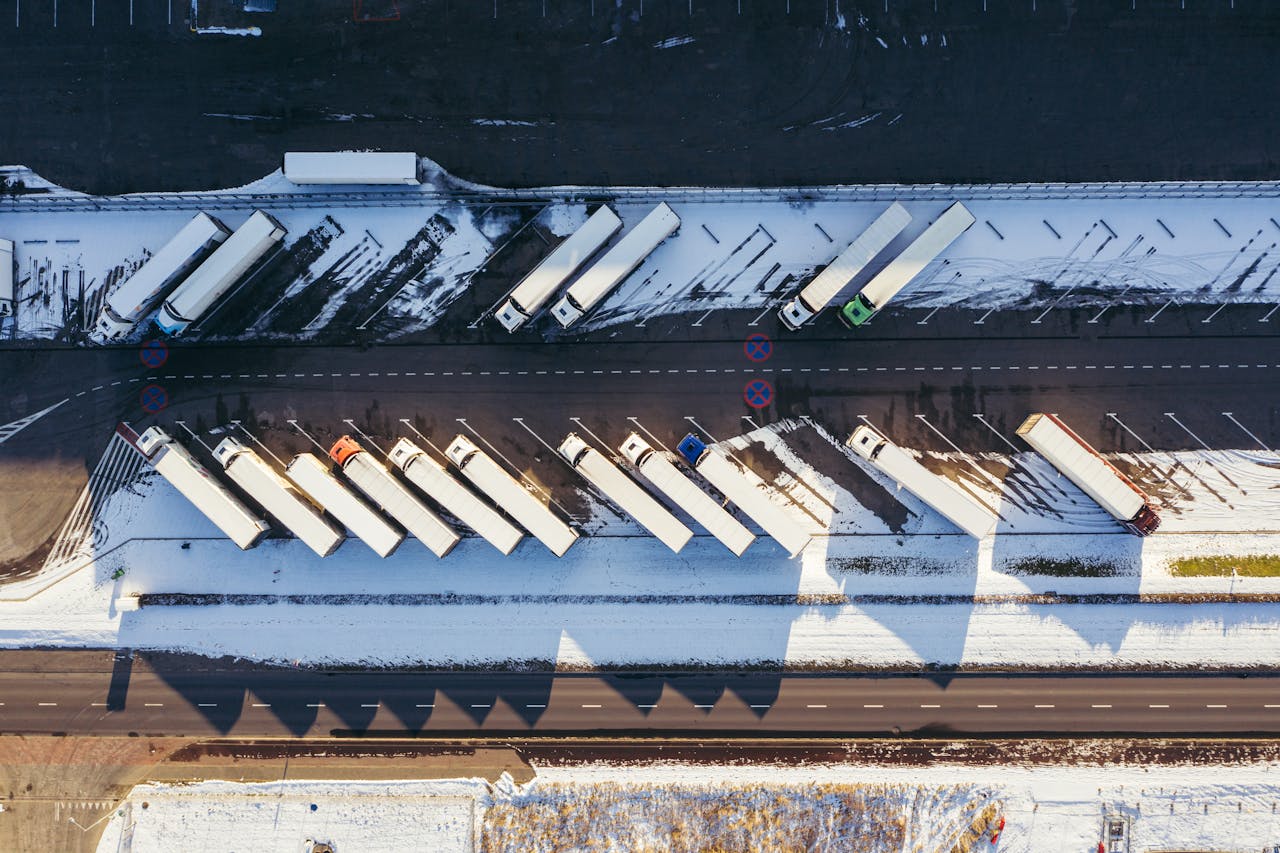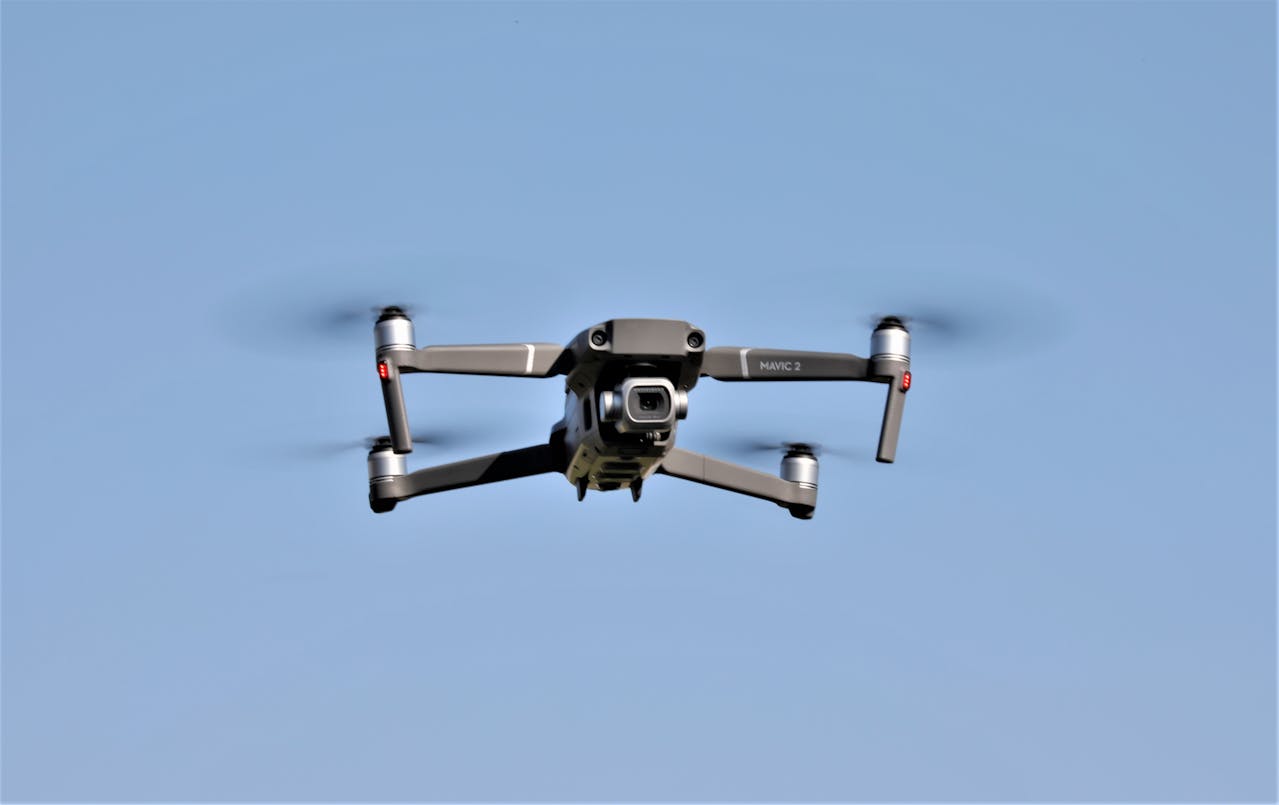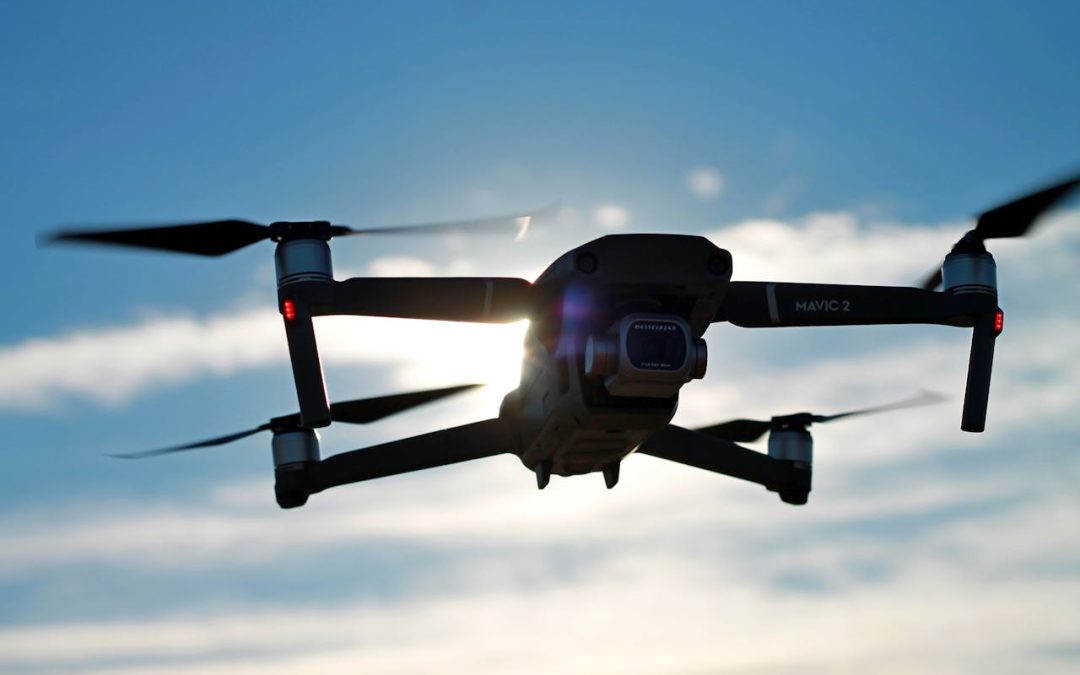The vision of drones dropping parcels into gardens has been floating around the internet for a few years now, with Amazon playing a key role in the concept of automated delivery. As with every new technology, there’s an excitement that builds – but where does reality meet science fiction? Are drones the future of logistics and delivery?
The First Truth – Shipping is Large Scale
Let’s be honest – the difference between a drone and a cargo ship is ridiculously vast, so much so that the idea of a drone replacing large-scale international logistics is absolutely comical. Container ships move millions of tonnes with each journey, while a drone can lift a few kilos. The idea that we’re about to find thousands of buzzing drones like bees circling the world with goods will remain TV series nonsense for a long while.
Shipping is large-scale, but not all logistics is…
The Second Truth – That Last Mile is Small Scale
Sure, getting the cargo from supply to international warehouse storage is still the remit of traditional freight, but what about when that cargo gets split up, ready for a final delivery? A drone might not be able to lift a filled shipping container, but the end customer doesn’t want a shipping container landing on their doorstep – they’re after a single package, which may be a t-shirt, a book, or some little plastic hooks. Those don’t weigh much at all.
When it comes to the last few miles of a delivery, that final drop to a customer, the versatility of drones becomes apparent. Without any need to follow road maps and with the ability to fly above difficult terrain, drones can solve some problems that final mile couriers have always found challenging.
Drones in Use Today
Using drones for delivery is already ongoing in the UK. The Orkney Skyport service, a partnership between Royal Mail and Skyports Drone Services, has been operational since 2023 and offers package deliveries to rural residents and businesses. While still essentially a trial programme, it shows how drones are especially relevant for remote communities that struggle to obtain timely deliveries through traditional means.
The NHS is another key early adopter of drone technology, showing how drones are also a significant advantage for transporting medicines and other sensitive materials, such as blood samples.
These services aren’t the imaginings of science fiction any more – they are here and now, bringing real benefits across the UK and around the world.
The Limitations of Drones in Worldwide Supply Logistics
As explored, drones are limited in the amount they can lift, but they also face challenges in a few other areas:
- Range – Drones simply don’t have the range to travel across continents. While they are perfect for short hops, distances of hundreds of miles are simply unviable with today’s technology.
- Weather – Drones are badly affected by poor weather conditions. As a lightweight carrier, they are far less useful in very windy or rainy conditions.
- Regulation – Drones must meet strict airspace rules, including BVLOS (Beyond Visual Line of Sight) regulations. We may imagine the idea of the skies full of buzzing and criss-crossing drones, but the reality is a lot tighter.
- Finances – While drones do offer a cheap alternative when traditional methods are difficult, they are really only economically viable when the value per kilo of their cargo is very high, or access is so difficult that drones represent the best realistic transport method.

Where Drones Do (and Will) Shine
Drone power really is in the last mile stretch of the delivery process, taking goods from hubs to the doorstep. Here, payload is light, distance is reduced, and weather less likely to cause problems.
This can be seen with major players, such as Amazon, who are actively testing the ground (or the air!) in this regard. In the near future, it’s likely we’ll become used to seeing drone technology used to undertake that last leg, hovering in front gardens and near porches as they make a final drop.
Business Logistics and the Impact of Drones
For businesses invested in international shipping, drones are unlikely to make a significant impact. Supply chains are going to remain based on the four key modes of transport: ships, planes, trucks, and trains.
That said, the core technology of automated navigation and piloting isn’t limited to light-weight flying carriers. Many modern cargo ships, trains, and planes have AI and automation assistance, utilising these cutting-edge technologies to optimise routes, improve fuel efficiency, and provide support to existing human crews. These do, however, remain advancements that go alongside traditional piloting – enhancing and helping, rather than replacing the human element.
Where companies can take advantage lies in this supporting technology. Keeping up-to-date with the myriad small improvements in logistics rather than expecting a sudden robot replacement. Drones are bringing a number of niche improvements, including:
- Expedited delivery of spare parts – Repairs to existing transportation are made more efficient when urgent replacement parts arrive within a few hours rather than long overnight or next day delays. This helps smooth existing freight services through drone support.
- Opening routes for rural deliveries – Customer bases can be expanded thanks to drone access, providing new delivery options that were previously impossible.
- Shipping high-value small packages – Continuous tracking and security make drones an excellent transport method to move high-value packages with extreme efficiency.

Millennium Cargo and Drones
At Millennium Cargo, we see drones as another in a long line of useful tools that have helped develop and improve the logistics industry to the high standard we hold today. They’re not revolutionary, nor are they about to replace any of our traditional methods of delivery, but they’re a very welcome addition that will improve reliability and access in specific situations – and that’s a good thing.
With an open-minded approach and tech-embracing nature, we at Millennium are excited to explore the world of drone technology and are here to bring it to you. When you partner with Millennium Cargo, you gain access to the latest innovations.
Our team will work with you to ensure smooth transit of your cargo from source to destination – and if drones bring additional efficiency and cost-savings, you’ll gain from that. Speak to one of our team today to learn more about how modern delivery methods can help your business logistics.

